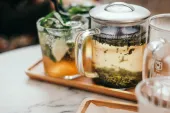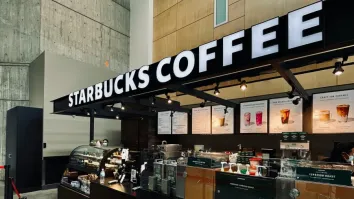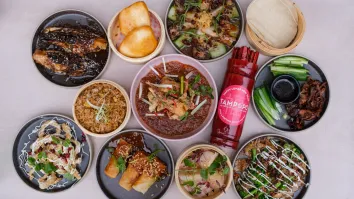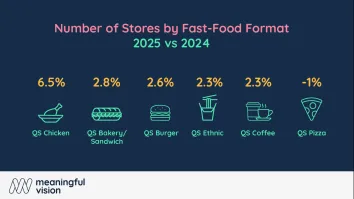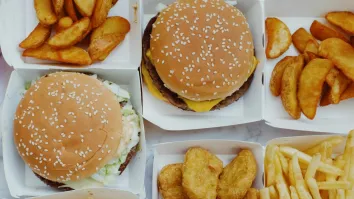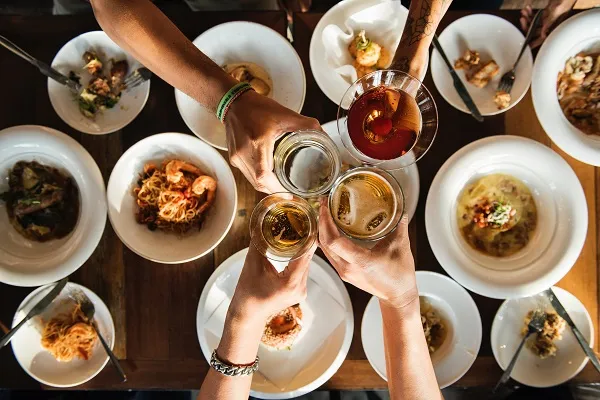
Ethical food and drink sales hit £8.2 billion in 2018: report
A majority of Brits consider ethical questions when dining out.
Adult consumers in the UK are increasingly eating with a conscience, to the tune of £8.2 billion towards ethical food and drink, including organic, Fairtrade, Rainforest Alliance and Marine Stewardship Council (MSC) certified products, according to market research company Mintel.
The latest of Mintel’s The Ethical Food Consumer 2019 report, which was carried out in Great Britain among 2,000 internet users aged 16+ in February 2019, found that over the past five years, sales of ethical food and drink have shot up by 43% from £5.7 billion in 2013. This year, sales are forecast to increase a further 4% to reach £8.6 billion.
Mintel says this trend will continue, as sales of ethically certified food and drink are projected to rise by 17% to reach £9.6 billion between 2019-23. The segment has become mainstream, with 83% of UK adults saying they have bought food/drink with some sort of ethical certification. Proving a hit with more mature Brits, those most likely to buy ethically-certified food/drink are aged over 55 (87%).
But while ethical food and drink is growing in popularity, the research found that cost remains a significant barrier, as seven in ten (70%) UK adults say that eating sustainably/ethically is harder when "money is tight". Confusion is also having an impact, as six in ten (60%) UK adults say that it is difficult to know the differences between the various sustainable/ethical schemes.
“Ethical food and drink has enjoyed strong sales growth in recent years, but price poses a significant barrier to greater uptake. This makes it imperative for companies to demonstrate to consumers how they can shop ethically without breaking the bank and how ethical products can – in some cases – even be the financially-savvy option,” Mintel research analyst Alice Baker explained.
“Drawing attention more strongly to where standard own-label products have ethical certifications would allow retailers to demonstrate to shoppers that they can buy ethically and potentially save money too. Products using surplus produce, for example the ‘wonky veg’ boxes offered by various supermarkets, can also be presented as both a financially-savvy option and an ethical one to tackle food waste.”
Waging a war on plastic
The ‘Attenborough effect’, or the large-scale environmental movement spurred by Sir David Attenborough’s nature documentaries like Planet Earth II and Blue Planet II, had a significant impact on plastic use in the UK, with seven in ten (67%) UK adults claiming to have made efforts to reduce the amount of plastic packaging they bought in the year to February 2019.
Eager to reduce plastic waste, six in ten (60%) Brits say they would be happy to use their own containers at supermarkets (ie for carrying meat or fish). But while consumers are keen to do their part to cut back on waste, eight in ten (83%) Brits believe that retailers should do more to help reduce packaging waste.
The research found that there is a significant benefit for companies that join the ongoing ethical revolution. Around half (48%) of UK adults say they are loyal to companies/brands whose ethics align with their own, rising to 56% of under-25s. In fact, a third (33%) of UK adults say they have stopped buying products from companies that have acted unethically, rising to 43% among under-25s.
While 49% of UK adults believe that their food and drink choices make a difference to the environment, slightly more (51%) disagree or are unsure whether or not this is true, underscoring the need for reassuring consumers that their shopping actions have an impact.
Free-range tops ethical purchases
Of all ethical certifications, free-range was the most widely bought by Brits (66%). Concern over animal welfare, meanwhile, is the number one reason for buying any food/drink with an ethical certification.
Fairtrade ranked as the nation’s second most popular ethical food and drink, bought by around half (53%) of Brits. Foods with a Red Tractor certification are bought by 49% of consumers and organic foods are purchased by 30% of Brits.
Environmental sustainability, meanwhile, resonates among under-35s, who show higher purchasing of food/drink with related certifications. A third (32%) of 16-34s buy Rainforest Alliance products, compared to an average of 25% of Brits; while 30% buy products with the FSC (Forest Stewardship Council) label on-pack, compared to an average of 20%.
“Free-range is a long-established label that spans various products, including eggs, poultry and – latterly – dairy products, including milk and yogurt. The intuitively tangible animal welfare image of free-range undoubtedly underpins its popularity.” Baker concluded.
